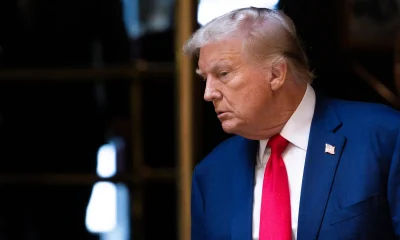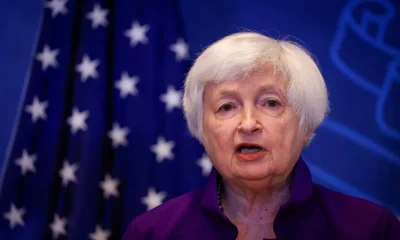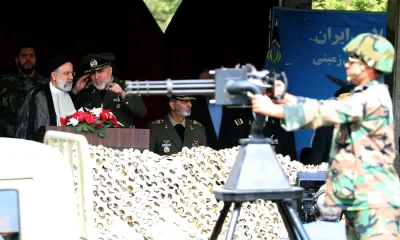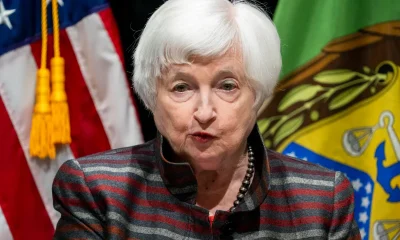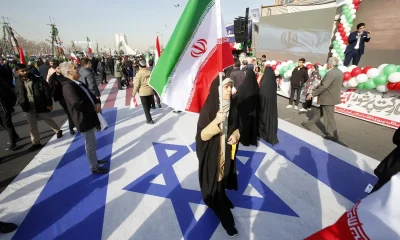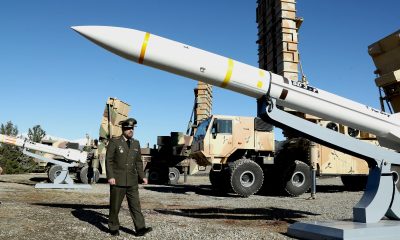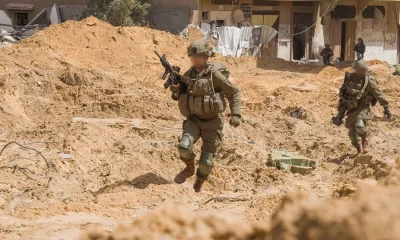International
Iran extends the vote in the presidential elections until midnight
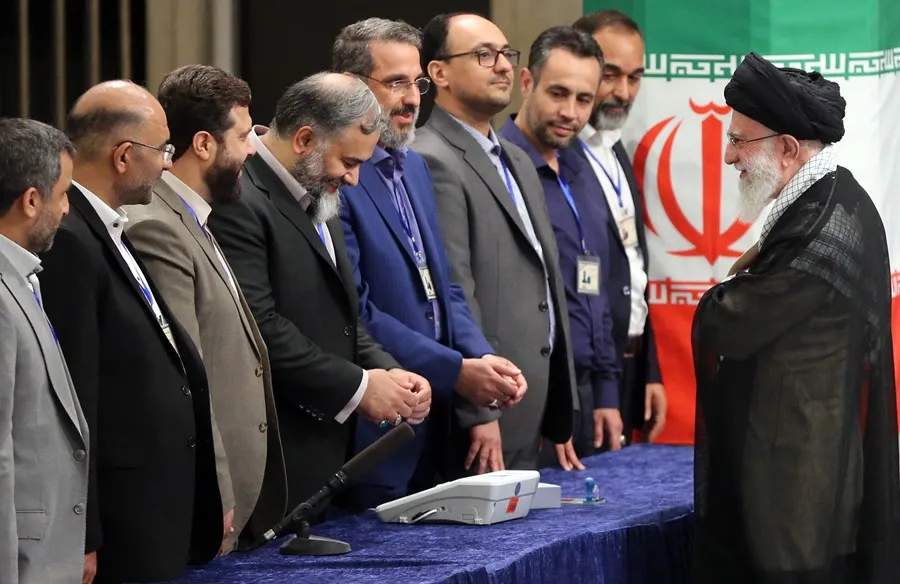
Iran extended this Friday until midnight the voting time of the early presidential elections after the death of the previous president, Ebrahim Raisí, in elections without a clear favorite.
“Due to the influx of citizens in the presidential elections, the voting time in all schools in the country is extended until 00:00 hours,” said the Iranian Electoral Commission, according to the IRNA agency.
Previously, the Iranian authorities had extended the initial closing time twice from 6:00 p.m. to 10:00 p.m., a common practice in the elections of the Persian country.
Around 58,000 polling stations opened their doors at 08:00 in the morning, local time (04:30 GMT) throughout the country, where more than 61 million people are called to the polls.
The favorite candidates are the conservative pragmatic Mohamad Baqer Qalibaf, the ultra-conservative Saeed Jalili and the reformist Masoud Pezeshkian to succeed President Ebrahim Raisí, who died in a helicopter crash in May.
Data from local polls point to a possible second round within a week, given that it seems that no candidate will achieve 50% of the votes.
Data from local polls point to a possible second round within a week, given that it seems that no candidate will achieve 50% of the votes.
The results are expected to be announced tomorrow, Saturday at noon.
The Iranian president has decision-making power in national matters and to a lesser extent in foreign and security policy in Iran, where the supreme leader, Ali Khamenei, serves as head of state with vast powers.
As is traditional, Khamenei voted first thing in the morning in front of the television cameras and called again to participate in the elections.
“The continuation, strength, dignity and honor of the Islamic Republic before the world depends on the participation of the people,” said the highest political and religious authority of the country.
Among the voters reigns, however, skepticism and apathy in the midst of an economy weighed down by 40% inflation, a devalued rial and 20% youth unemployment.
To this is added the disenchantment of many Iranians, especially young people, with the Islamic Republic in the face of the lack of social freedoms, especially the imposition of the Islamic veil, a hot issue since the death of Mahsa Amini in 2022 after being arrested for not wearing it well, which provoked strong protests.
This apathy among the 61 million voters worries the Islamic Republic, which attaches great importance to participation in the elections as a sign of its legitimacy and popular support.
In the parliamentary elections of March, the lowest turnout was recorded in the 45 years of the Islamic Republic, when only 41% of the electorate went to the polls, while in the 2021 presidential elections they voted 48%.
Central America
Senator Van Hollen Meets with Deported MS-13 Member in El Salvador; Trump and Bukele React

U.S. Democratic Senator Chris Van Hollen, representing the state of Maryland, held a meeting in El Salvador with deported MS-13 gang member Kilmar Ábrego García, a member of the criminal group classified by the U.S. government as a terrorist organization.
“Kilmar Ábrego García, miraculously resurrected from the ‘extermination camps’ and ‘torture chambers,’ now sipping margaritas with Senator Van Hollen in the tropical paradise of El Salvador!” wrote President Nayib Bukeleon X (formerly Twitter), sharing photos of Van Hollen, Ábrego García, and a lawyer sitting together at a Salvadoran hotel.
The deported gang member is seen wearing a plaid shirt and a flat-brimmed cap, seated at a table with glasses and coffee cups. The senator also shared images of the meeting on his own social media accounts.
Bukele reaffirmed that Ábrego will remain in El Salvador and will not be returned to the United States.
“Now that his health has been confirmed, he has earned the honor of remaining under the custody of El Salvador,” Bukele added.
Former U.S. President Donald Trump criticized the senator’s meeting with Ábrego on Truth Social, calling Van Hollen “a fool” for advocating for Ábrego’s return to the U.S.
International
Pope Francis Appears for Easter Blessing, Calls for Peace and Religious Freedom

Pope Francis, still recovering from pneumonia, appeared on the balcony of St. Peter’s Basilica in the Vatican on Easter Sunday and, with a faint voice, wished a “Happy Easter” to the thousands of faithful gathered to celebrate the Resurrection of Christ.
A month after being discharged from a lengthy hospital stay, the presence of the 88-year-old pontiff had remained uncertain, with the Vatican not confirming his attendance ahead of time.
Eventually, the pope made a brief appearance in a wheelchair shortly after 12:00 p.m. (10:00 GMT) to deliver his traditional “Urbi et Orbi” blessing (“to the city and to the world”).
Although no longer wearing an oxygen cannula, the Argentine Jesuit relied on a close aide to read his Easter message, which touched on major global conflicts.
Francis condemned the “dramatic and unworthy humanitarian crisis” in Gaza and called for a ceasefire, while also expressing concern over the “growing climate of antisemitism spreading across the globe.”
He further emphasized the importance of religious freedom and freedom of thought, stating that without mutual respect, “peace is not possible.”
International
Thousands rally nationwide against Trump’s threat to U.S. democracy

Thousands of protesters gathered on Saturday (April 19, 2025) in major cities like New York and Washington, as well as in small communities across the United States, in a second wave of demonstrations against President Donald Trump. The crowds denounced what they view as growing threats to the country’s democratic ideals.
In New York City, demonstrators of all ages rallied in front of the Public Library near Trump Tower, holding signs accusing the president of undermining democratic institutions and judicial independence.
Many protesters also criticized Trump’s hardline immigration policies, including mass deportations and raids targeting undocumented migrants.
“Democracy is in grave danger,” said Kathy Valyi, 73, the daughter of Holocaust survivors. She told AFP that the stories her parents shared about Adolf Hitler’s rise to power in 1930s Germany “are happening here now.”
In Washington, demonstrators voiced concern over what they see as Trump’s disregard for long-standing constitutional norms, such as the right to due process.
-

 International4 days ago
International4 days agoArsenal stun Real Madrid at the Bernabéu to reach Champions League semifinals
-

 Central America3 days ago
Central America3 days agoNicaraguan Exiles to Mark 7th Anniversary of 2018 Protests with Global Commemorations
-

 International3 days ago
International3 days agoDominican ‘False Hero’ Arrested for Faking Role in Nightclub Collapse That Killed 231
-

 International2 days ago
International2 days agoACLU seeks emergency court order to stop venezuelan deportations under Wartime Law
-

 International4 days ago
International4 days agoBogotá residents line up for yellow fever vaccine amid national alert
-

 International4 days ago
International4 days agoDeSantis’ immigration crackdown sparks alarm in Venezuelan Communities in Doral
-

 Central America2 days ago
Central America2 days agoUN complaint filed against Costa Rica over detention of migrant children
-

 International4 days ago
International4 days agoMexico refuses to restore ties with Ecuador while Noboa remains in office
-

 International21 hours ago
International21 hours agoThousands rally nationwide against Trump’s threat to U.S. democracy
-

 Central America4 hours ago
Central America4 hours agoSenator Van Hollen Meets with Deported MS-13 Member in El Salvador; Trump and Bukele React
-

 International4 hours ago
International4 hours agoPope Francis Appears for Easter Blessing, Calls for Peace and Religious Freedom














